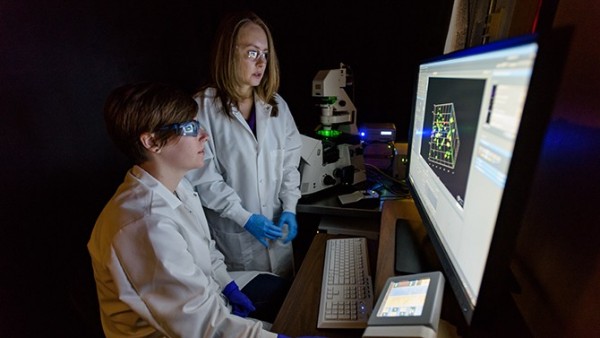
Emily Day is using tiny particles to make a big impact.
Developing nanoscale materials to outsmart cancerous tumors
Emily Day, an assistant professor of biomedical engineering at the University of Delaware, has received a National Science Foundation (NSF) Career award to engineer membrane-wrapped nanoparticles for targeted ribonucleic acid (RNA) delivery to breast cancer cells. The grant, which is expected to total $500,000, will start on May 1, 2018 and last until April 30, 2023. Day studies how nanoparticles, which measure about one-thousandth the width of a human hair, can be used in cancer treatment. For example, she is known for her previous research on the use of gold nanoparticles for heat-based treatment of cancer and for gene regulation of cancer. For this project, Day is making novel nanoparticles containing special ribonucleic acid (RNA) molecules.




